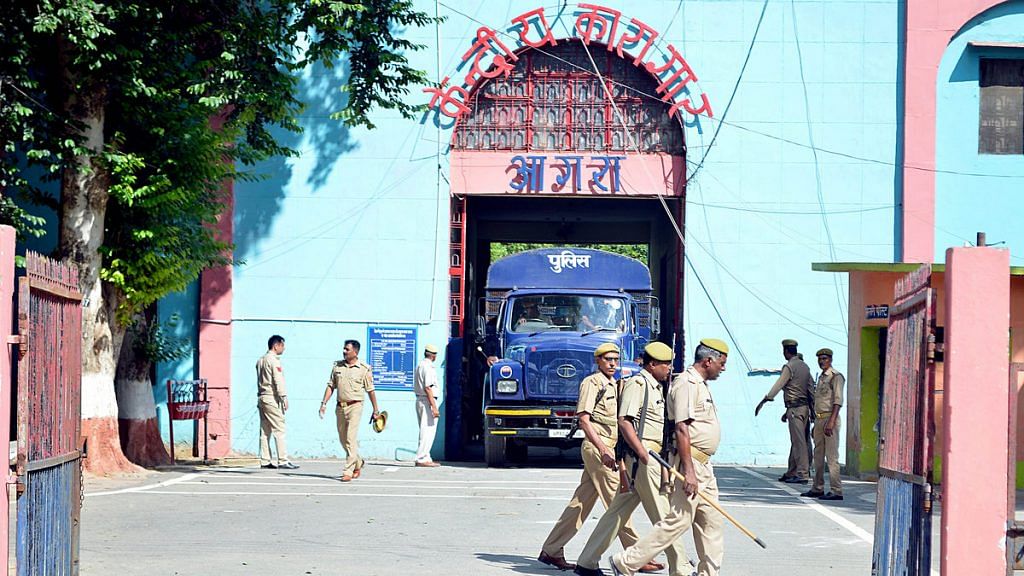New Delhi: The Uttar Pradesh government has refused to divulge details of inmates from Jammu and Kashmir who were shifted to the Agra Central Jail as part of special security measures after the government’s move to scrap Article 370 on 5 August.
Replying to an RTI query filed by Venkatesh Nayak, a member of the Commonwealth Human Rights Initiative, the jail authorities have said information sought is a “third party” inquiry which is confidential and could jeopardise the life and safety of prisoners.
The prison, however, hasn’t denied the presence of inmates, though it withheld the particulars — names, addresses, grounds for imprisonment, whether the inmates had been granted access to legal counsel etc.
“The reply is extremely confusing. On the one hand, they are using an exemption to deny information, but they are not able to justify how the information, being ‘third party’ falls under an exemption,” Nayak told ThePrint.
“Third party” procedure in the RTI Act is enforced only when confidential information is sought. But Nayak argued that since the inmates are now lodged outside of J&K, jail authorities are required to release information according to the Code of Criminal Procedure Act, 1973 — which mandates that basic information and grounds for arrest should be made public.
Parliament’s power to legislate the CrPC Act in respect to J&K was curtailed by Article 370. It will now be applicable in the state when the J&K Reorganisation Act comes into effect on 31 October.
In a post, Nayak also said the prison authorities’ claim that information sought could endanger the lives of inmates was “absurd”.
“To argue that the lives of detainees, who are housed in a central prison with high-level security measures already in place, would be endangered by disclosing their names and addresses is absurd. It also speaks volumes about the lack of faith the prison officials have about the very security measures they have put in place to guard inmates,” he wrote in the post.
Also read: The administrative changes that await J&K as it heads towards bifurcation
No detail on arrests, internet suspension
Reports about 150 inmates being transferred out of J&K into four jails of Uttar Pradesh had surfaced on 24 August, soon after the end of the state’s special status. Less than a week later, on 30 August, Nayak had filed the RTI query and sought a reply within 48 hours. But he was given a reply 20 days later.
“I have no way to prove this, but these replies seem to be designed to deny anyone access to sensitive information since it’s related to J&K. This is the case with only one jail in Agra. We have no idea about the other jails where many Kashmiris are being housed, and under what circumstances and conditions are they being kept,” he said.
Nayak had earlier filed another RTI with the Ministry of Home Affairs seeking documents sanctioning the ongoing internet shut down in the Valley. The MHA had replied saying it didn’t have any documents related to the internet and telecommunication restrictions.
Cloud over RTI
The government’s reply to Nayak’s RTI came at a time when the present government has sought amendments to dilute the Act. The Centre had, in July, passed an amendment to the law which would dictate the tenures and salaries of information officers.
Following the scrapping of Article 370, the RTI Act will now replace J&K’s current transparency law. This will put the Centre directly in charge of RTIs in the region. While this will have several bureaucratic hurdles, Nayak also believes there would be one advantage to it.
“Currently, the RTI Commission in J&K has only one officer. Once the facilities come under the Central Information Commission, they are likely to be better staffed, and an appeal is more likely to be heard quickly,” he said.
Also read: From Manmohan to Modi, Indian govt has been working to kill RTI Act – with judiciary’s help
